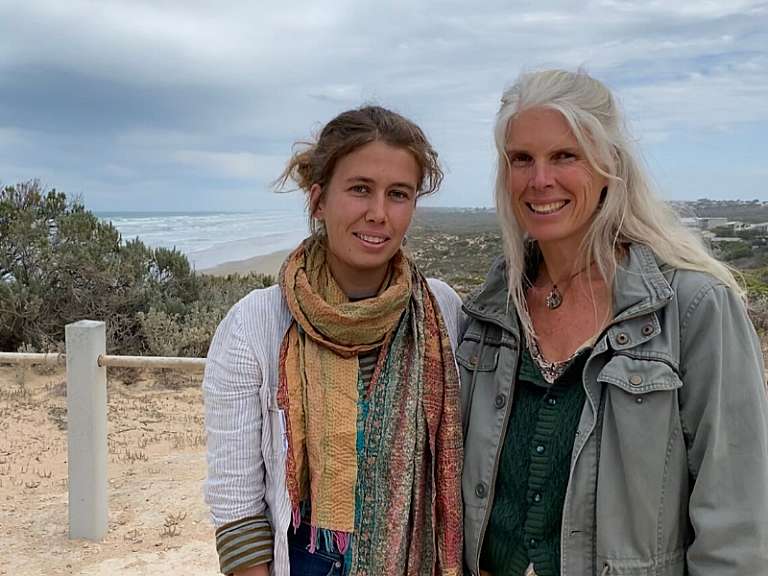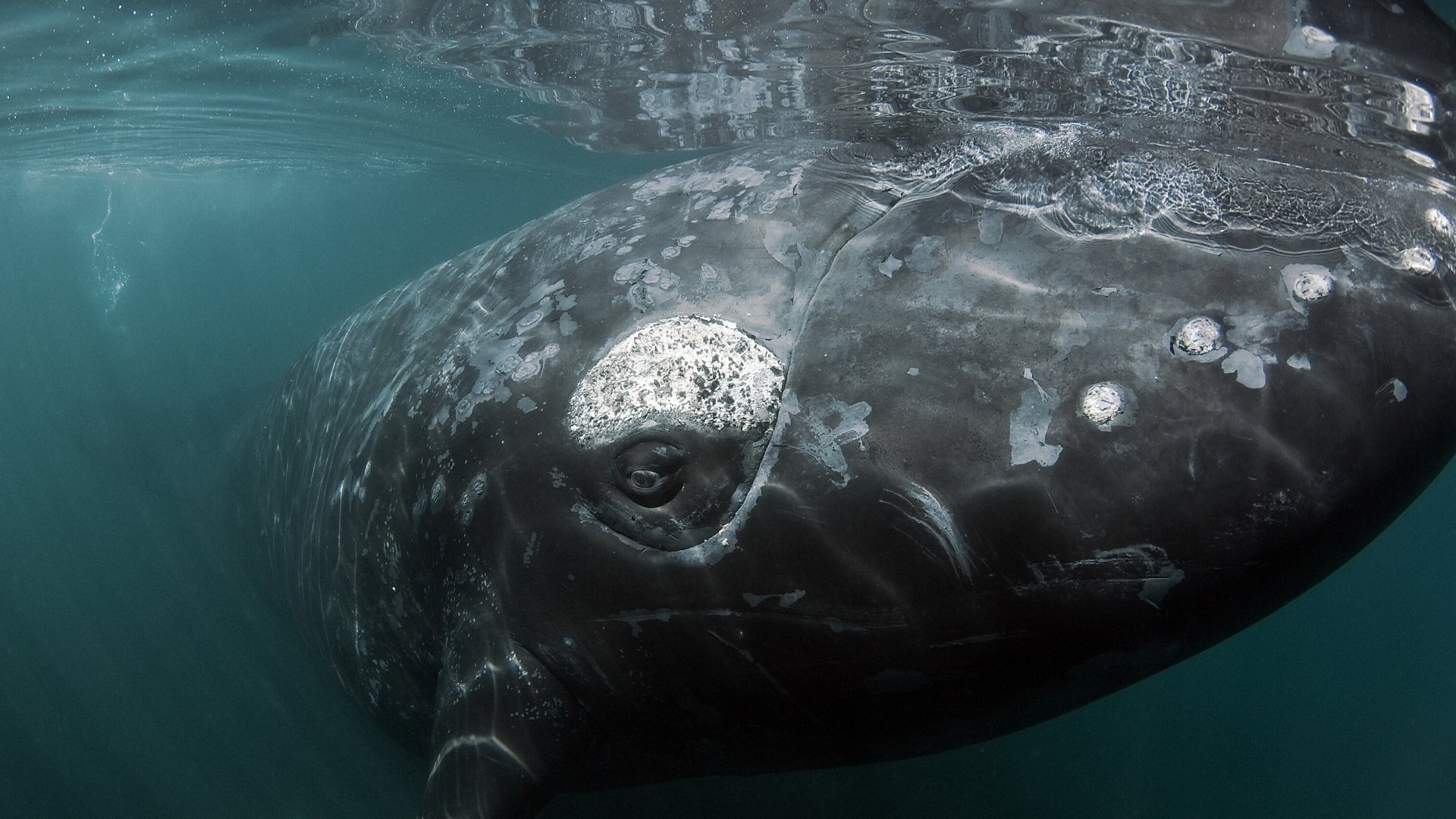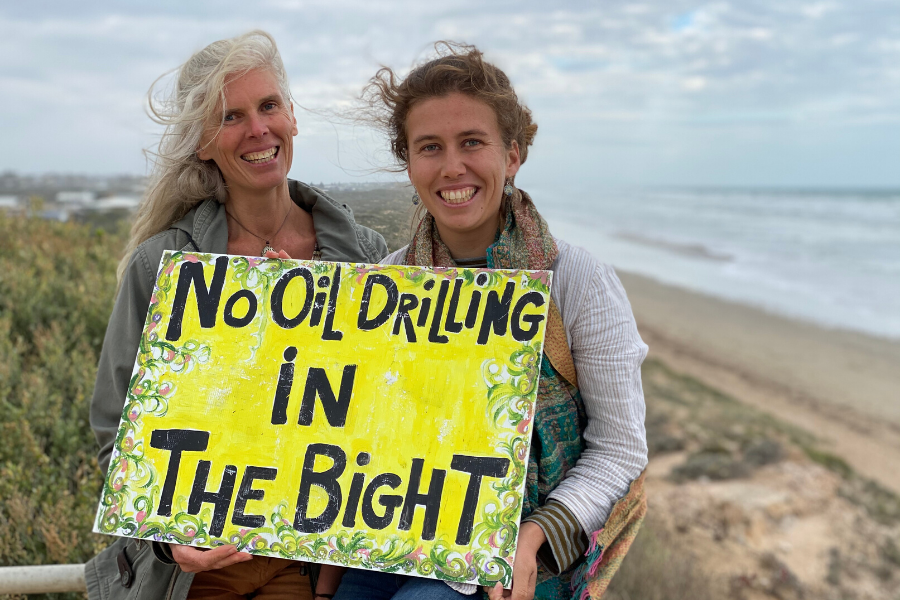
Coast guards
Lindy and her daughter Freya live on the shores of the Southern Ocean, a pristine marine environment they cherish for its revitalising qualities and rich biodiversity. With Equinor having recently abandoned its plans to drill for oil in the Great Australian Bight, they recall their community's tireless opposition to Big Oil and what should happen next.
The Great Australian Bight needs to be protected for good, donate to support our campaign.
The people living on the surf- and wind- battered cusp of the Southern Ocean are a resilient bunch. Equinor was just the latest big oil company they’ve had to endure. Like other companies come and gone before, Equinor turned up with an eye to exploit the Great Australian Bight before failing in its bid to extract oil from beneath the roiling Southern Ocean, a process that would require risky deep-water drilling.
And it’s all thanks to the people that call this place home. They’ve stood like sentinels along the coast, made their voices loud and clear for the protection of the Great Australian Bight and the communities and wildlife it supports. Chevron, BP and, just last February, Equinor baulked under pressure from these resolute communities, supported in their efforts by the Wilderness Society and its partners in the Great Australian Bight Alliance.
They’re people like Lindy and Freya, whose family home in Goolwa is a stone's throw from the town’s namesake wild surf beach. “Freya’s been here since she was two weeks old,” says her mother Lindy. “We’re very quiet people who like to be out in nature, but we felt compelled to be a part of the campaign to stop Equinor drilling for oil and to help in whatever way we could to protect this coastline.”

It’s a coastline that both mother and daughter have a strong, unbreakable connection with. Freya grew up using the surf as a playground. “I've always loved the ocean,” she says. “I’m at peace when I'm in the water, when I'm surfing or swimming; even just walking on the beach.
“It’s a really wild coastline and the Southern Ocean has so much biodiversity; you see whales, dolphins, seals and pelicans. Out on the water I’ve been lucky enough to see southern right whales close enough to hear them breathing. They use the area to calve.”
“I often walk along the beach, breathe in the air and take in all of the shells shining on the shoreline and the dune grasses blowing in the wind. And it fills me with energy; it makes me feel good in myself,” agrees Lindy. “It’s a beautiful place, and I gain a lot from it personally, physically, spiritually and emotionally.
“You can come down here and just have a sense of peace and balance. I've been through an illness, and I found that walking on the coast actually helped give me some strength to recover. So I feel that I owe a lot to this place; it's actually a feeling of gratitude that overflows into wanting to protect it.”

And protect it they did. Again. Just as they have in the past seeing off both Chevron and BP, this time it was Equinor that couldn’t follow through with its plans to exploit the Great Australian Bight. And the communities were steadfast in their opposition even after the Norwegian oil giant received environmental approval from the Government's regulatory body NOPSEMA to begin operations. “I was really excited, obviously. And also in a bit of disbelief about the news that Equinor had pulled out,” recalls Freya. “And then after the news sunk in it was such a huge relief.”
“I got a message around 10am that morning and I was jumping around with excitement,” remembers Lindy. “I was very relieved; it's been weighing people down since it was announced that Equinor was going ahead with its plans. So it was a big weight lifted.”
It’s easy to see why news of this latest fossil fuel giant to pull out proved to be such a relief for the people that live here. An oil spill would be devastating for marine life, the communities that rely on fishing these waters and the seasonal arrival of visitors from Adelaide who come to enjoy seemingly infinite stretches of wild coast.
“The fossil fuel companies just want to plough ahead and grab what they can. They’re not listening to the experts, the communities; they’re not listening to Indigenous people-it’s sacred to the Mirning people,” says Lindy. “This area is pristine, it's significant. It needs to be left alone and listed as World Heritage.”
The decision by Equinor to pull out was also a huge relief because of the amount of carbon the project would have unleashed. At a time when the world is desperately trying to curb the use of fossil fuels to ensure a safe climate, Equinor’s plan to open a new oil frontier was simply untenable. “People don’t want to be seeing more fossil fuel exploration at the moment, and it’s at the forefront of everyone’s minds because of the bushfire season we’ve had,” says Freya. “It’s just madness to go ahead with these projects.”

The outstanding sentiment from their time campaigning for the protection of the Bight has been a sense of community spirit. “There’s been a great connection with others who have their heart in it. People have come with the same enthusiasm, hope and energy to try and protect this pristine environment. People have come together and worked together, and that's been very positive and widespread,” says Lindy. So what’s next? Well that community spirit and drive shows no signs of receding, of packing up shop like the oil companies gone before. “We need to put in place permanent protections for the Bight so that we don’t have to deal with this kind of thing again,” says Freya.
“I would like to be able to walk on the beach and not have to worry about these big companies coming in and putting beautiful environments at risk, putting my children’s future at risk,” Lindy says. “I don’t want to have to be worrying about it, but unfortunately, I still have to. I feel a responsibility because it gives so much to my life. It’s a wild place that shouldn't be owned.
“But I think you need to have hope because the other option is to give up and not do anything. The Bight should be protected for good.” With people like Freya and Lindy living down here on the fringes of the Southern Ocean, you can’t but help believe that will happen.
Are you in?
Together, we have shown that we want the Bight protected from drilling. And the next steps will be making sure that this special place is formally protected for good.